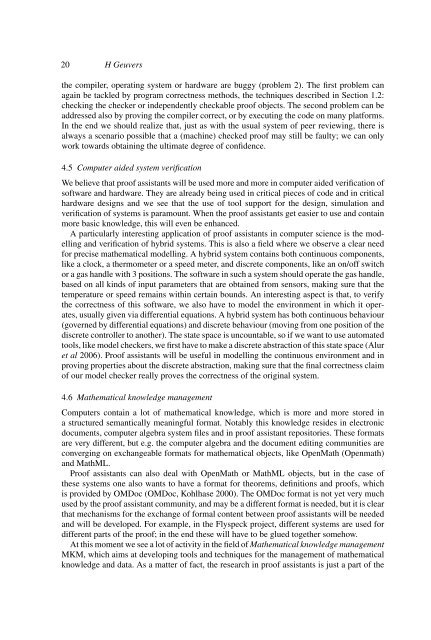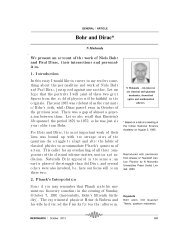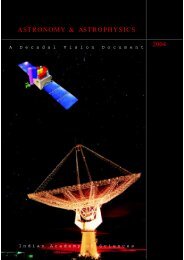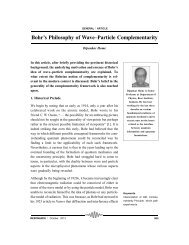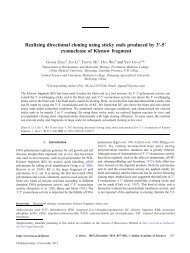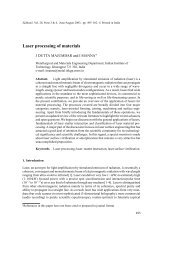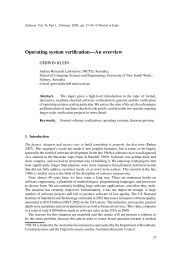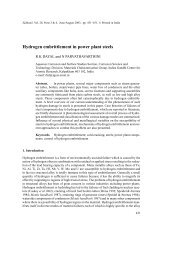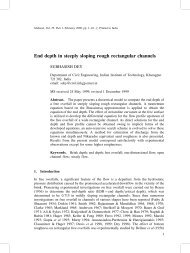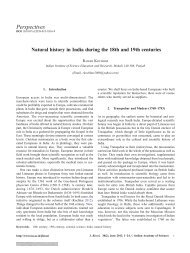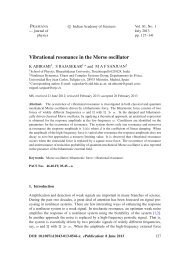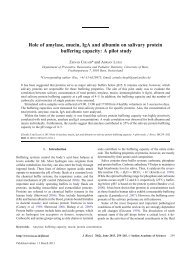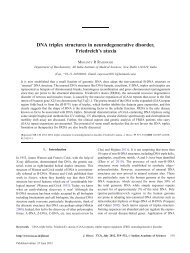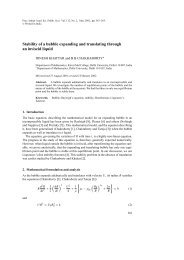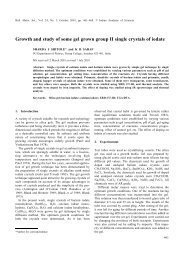Proof assistants: History, ideas and future
Proof assistants: History, ideas and future
Proof assistants: History, ideas and future
You also want an ePaper? Increase the reach of your titles
YUMPU automatically turns print PDFs into web optimized ePapers that Google loves.
20 H Geuvers<br />
the compiler, operating system or hardware are buggy (problem 2). The first problem can<br />
again be tackled by program correctness methods, the techniques described in Section 1.2:<br />
checking the checker or independently checkable proof objects. The second problem can be<br />
addressed also by proving the compiler correct, or by executing the code on many platforms.<br />
In the end we should realize that, just as with the usual system of peer reviewing, there is<br />
always a scenario possible that a (machine) checked proof may still be faulty; we can only<br />
work towards obtaining the ultimate degree of confidence.<br />
4.5 Computer aided system verification<br />
We believe that proof <strong>assistants</strong> will be used more <strong>and</strong> more in computer aided verification of<br />
software <strong>and</strong> hardware. They are already being used in critical pieces of code <strong>and</strong> in critical<br />
hardware designs <strong>and</strong> we see that the use of tool support for the design, simulation <strong>and</strong><br />
verification of systems is paramount. When the proof <strong>assistants</strong> get easier to use <strong>and</strong> contain<br />
more basic knowledge, this will even be enhanced.<br />
A particularly interesting application of proof <strong>assistants</strong> in computer science is the modelling<br />
<strong>and</strong> verification of hybrid systems. This is also a field where we observe a clear need<br />
for precise mathematical modelling. A hybrid system contains both continuous components,<br />
like a clock, a thermometer or a speed meter, <strong>and</strong> discrete components, like an on/off switch<br />
or a gas h<strong>and</strong>le with 3 positions. The software in such a system should operate the gas h<strong>and</strong>le,<br />
based on all kinds of input parameters that are obtained from sensors, making sure that the<br />
temperature or speed remains within certain bounds. An interesting aspect is that, to verify<br />
the correctness of this software, we also have to model the environment in which it operates,<br />
usually given via differential equations. A hybrid system has both continuous behaviour<br />
(governed by differential equations) <strong>and</strong> discrete behaviour (moving from one position of the<br />
discrete controller to another). The state space is uncountable, so if we want to use automated<br />
tools, like model checkers, we first have to make a discrete abstraction of this state space (Alur<br />
et al 2006). <strong>Proof</strong> <strong>assistants</strong> will be useful in modelling the continuous environment <strong>and</strong> in<br />
proving properties about the discrete abstraction, making sure that the final correctness claim<br />
of our model checker really proves the correctness of the original system.<br />
4.6 Mathematical knowledge management<br />
Computers contain a lot of mathematical knowledge, which is more <strong>and</strong> more stored in<br />
a structured semantically meaningful format. Notably this knowledge resides in electronic<br />
documents, computer algebra system files <strong>and</strong> in proof assistant repositories. These formats<br />
are very different, but e.g. the computer algebra <strong>and</strong> the document editing communities are<br />
converging on exchangeable formats for mathematical objects, like OpenMath (Openmath)<br />
<strong>and</strong> MathML.<br />
<strong>Proof</strong> <strong>assistants</strong> can also deal with OpenMath or MathML objects, but in the case of<br />
these systems one also wants to have a format for theorems, definitions <strong>and</strong> proofs, which<br />
is provided by OMDoc (OMDoc, Kohlhase 2000). The OMDoc format is not yet very much<br />
used by the proof assistant community, <strong>and</strong> may be a different format is needed, but it is clear<br />
that mechanisms for the exchange of formal content between proof <strong>assistants</strong> will be needed<br />
<strong>and</strong> will be developed. For example, in the Flyspeck project, different systems are used for<br />
different parts of the proof; in the end these will have to be glued together somehow.<br />
At this moment we see a lot of activity in the field of Mathematical knowledge management<br />
MKM, which aims at developing tools <strong>and</strong> techniques for the management of mathematical<br />
knowledge <strong>and</strong> data. As a matter of fact, the research in proof <strong>assistants</strong> is just a part of the


